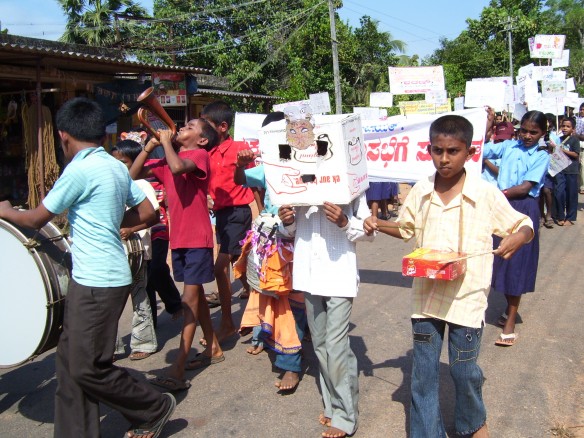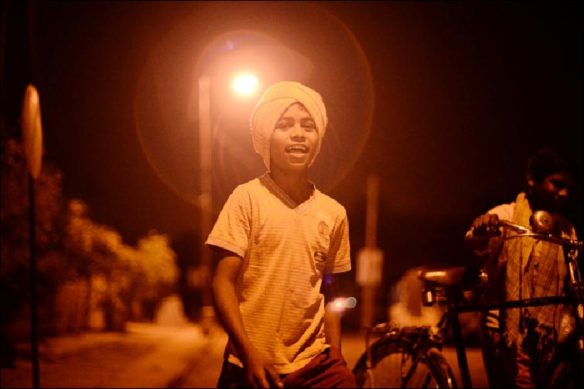Heroor Panchayat’s Makkala Grama Sabha
Posted on September 11, 2012
The Makkala (Children’s) Grama Sabha in Heroor Panchayat was conducted on April 5th , 2011 in the middle of beautiful field. There was no hierarchy between adults and children. All were gathered in a common platform on the floor and sat on a Jamkhana (carpet). Children’s union representatives, Grama Panchayat Representatives, Department officials, office bearers of different organisations gathered on the same platform and at the same level (literally and figuratively) and discussed together.
What is significant is the intense preparation that children’s organisations had done prior to the actual Makkala Grama Sabha. The process of information boards, problem box, process of writing issues, and consolidation of issues was carried out in four schools. These preparations were carried out with both school and sangha children. The children of Heroor, Mekodu, Ragihaklu decided to use the ‘Red Ribbons’ method of monitoring and evaluation of the work of their Panchayats and as a way to publicise the issues they raised.
At the Makkala Grama Sabha, the Panchayat Secretary invited 10 children representatives from 5 sanghas, the Grama Panchayat President, Panchayat Development Officer, representatives from organisations, and Grama Panchayat members to the stage. Consolidated demands have been presented by children from the sanghas. One teacher shared that he used to say “children are the citizens tomorrow” earlier, but now children have proved through their active participation that “children are citizens today”.
Child representatives shared about the process of mapping and research that they were involved in. The mapping enabled children to collect the information of that Grama Panchayat such as available resources, facilities and needs. They presented this data and raised demands that arose out of their information management. A Panchayat member, Mr. Praveen Shetty said that the information indicated through mapping and issues raised by children are unique. He also said that the way in which children presented their demands was well thought out and interesting.
Following the children’s presentations, elected representatives made several promises to fulfil children’s demands. Children were ensured that confidential problems would be dealt with in a sensitive manner. Most significantly, the Grama Panchayat President invited children to General Meeting of Grama Panchayats which is conducted once in 3 months. He requested the children to present their issues there as well. This was a major recognition by the elected governments of the legitimacy of children’s participation rights, and perhaps the first time at the Panchayat level. All Panchayat representatives present also recognised CWC’s role in facilitating children to participate in democracy and to determine their rights. They raised the need for capacity building on facilitation skills and processes.



